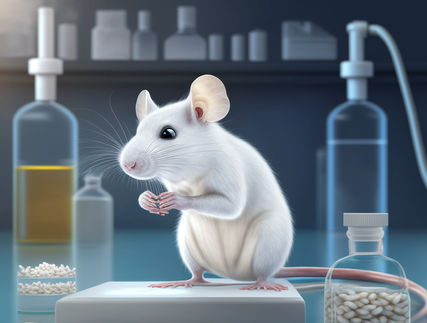Mayo Clinic researchers map prostate cancer relapse
By using C-11 choline PET and MRI
A team of Mayo Clinic researchers has, for the first time, successfully mapped patterns of prostate cancer recurrence, following surgery. Using C-11 choline PET imaging and multiparametric MRI, researchers found an anatomically diverse pattern of recurrence, which may help optimize treatment of patients whose prostate cancer returns after surgery.
"This study has important implications for men who have a rising prostate-specific antigen (PSA) test, also known as biochemical recurrence, after radical prostatectomy for prostate cancer," says Jeffrey Karnes, M.D., a urological surgeon at Mayo Clinic. "In men with biochemical recurrence, determining where the disease has recurred is quite challenging, especially when the PSA level is low."
According to Dr. Karnes, in the U.S., approximately 30 percent of patients who have had an initial prostate cancer surgically excised will suffer a recurrence and seek treatment. "Current imaging tests like conventional bone and CT scans are not sensitive enough to identify sites of recurrence, especially when the PSA value is lower than 10," he says.
Dr. Karnes says the combination of C-11 choline PET scanning and multiparametric MRI, helps physicians accurately identify sites of recurrence at an average PSA of 2. More importantly, he says, "This type of staging allows us to identify sites of recurrent disease that can be potentially treated either surgically or with radiation."
Dr. Karnes and his team also were able to describe patterns of prostate cancer recurrence. They found that nearly two-thirds of men in the study had recurrence limited to the pelvis, which potentially can be targeted for radiation therapy.
Original publication
Original publication
Ilya Sobol, Harras B. Zaid, Rimki Haloi, Lance A. Mynderse, Adam T. Froemming, Val J. Lowe, Brian J. Davis, Eugene D. Kwon, R. Jeffrey Karnes; "Contemporary Mapping of Post-Prostatectomy Prostate Cancer Relapse with C-11 Choline PET and Multiparametric MRI"; Journal of Urology; 2016
Topics
Organizations
Other news from the department science

Get the life science industry in your inbox
By submitting this form you agree that LUMITOS AG will send you the newsletter(s) selected above by email. Your data will not be passed on to third parties. Your data will be stored and processed in accordance with our data protection regulations. LUMITOS may contact you by email for the purpose of advertising or market and opinion surveys. You can revoke your consent at any time without giving reasons to LUMITOS AG, Ernst-Augustin-Str. 2, 12489 Berlin, Germany or by e-mail at revoke@lumitos.com with effect for the future. In addition, each email contains a link to unsubscribe from the corresponding newsletter.



















































